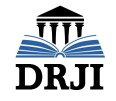Globalization and the paradoxal intersection between reflective modernization and peripheral modernization in brazilian society: immunization and refusal of modernity in the case of the Universal Church of the Kingdom of God
DOI:
https://doi.org/10.5433/1679-0383.2018v39n2p229Keywords:
Globalization, Second modernity, Peripheral modernization, Immunization, ConservatismAbstract
Guided by the analytical and interpretive method of Karl Mannheim's German Sociology of Knowledge, as well as by theoretical references, especially by Ulrich Beck, this article seeks to deal with the complex ambivalent process present at the intersection between the cultural values of the second modernity; imposed by the globalization of capitalism in Brazilian society, with our peculiar processes of late and peripheral modernization pointed out by Jesse de Souza. Demonstrating that by pointing to the presence of evil; through the personification of the figure of the devil, in the very social relations that have been degenerated by excessive individualism, the Universal Church of the Kingdom of God realizes the denial of modernity itself, by not recognizing new rights of emerging sociocultural identities in our country. Performing a process of segregation and exclusion of society through the immune paradigm of law and, translating, the legacy of our peculiar process of delayed, peripheral and conservative modernization.Downloads
Downloads
Published
How to Cite
Issue
Section
License
Semina: Ciências Sociais e Humanas adopts the CC-BY-NC license for its publications, the copyright being held by the author, in cases of republication we recommend that authors indicate first publication in this journal.
This license allows you to copy and redistribute the material in any medium or format, remix, transform and develop the material, as long as it is not for commercial purposes. And due credit must be given to the creator.
The opinions expressed by the authors of the articles are their sole responsibility.
The magazine reserves the right to make normative, orthographic and grammatical changes to the originals in order to maintain the cultured standard of the language and the credibility of the vehicle. However, it will respect the writing style of the authors. Changes, corrections or suggestions of a conceptual nature will be sent to the authors when necessary.

















